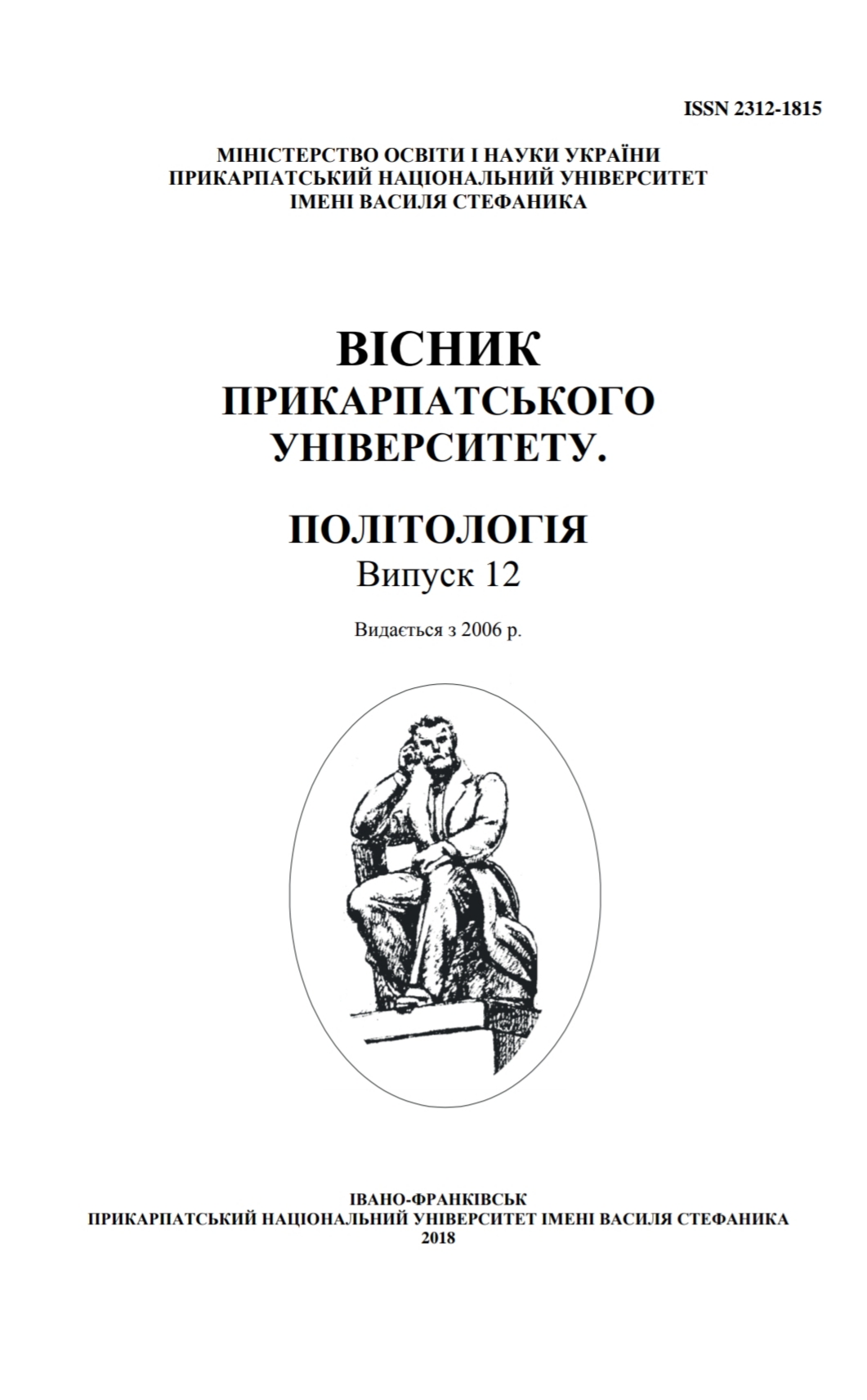Parliamentarism in Slovakia: institutional peculiarities and party political dynamics
Keywords:
Keywords: Slovak Republic, parliamentarism, division of power, constitutional model, political parties, democratizationAbstract
The article deals with the development of the president's institution through the prism of state-power relations, constitutionalism and political transformations in the Slovak Republic. Noted that the process of democratic transformations in the Slovak Republic is closely linked to the development of the institute of
parliamentarism, which occupies a central place in the system of power relations.
The constitutional model of Slovak parliamentarism is analyzed. It is concluded that in the constitution 1992 many provisions were formulated vaguely and provoked institutional conflicts. Constitutional amendments (1999, 2001) partly reinstated the institutional balance in the system of power relations. Slovakia is dynamically reacting to political crises and is looking for the possibility of constitutionally improving the institution of the parliamentarism.
The party representation in the Slovak parliament during 1990-2016 was found out. The author highlighted the main problems of the functioning of the Slovak parliamentarism: high degree of fragmentation and fluctuation of the political structure of parliament; the instability of the parliamentary representation of the political parties and others.
It is substantiated that the development of Slovak parliamentarism was due to a complex of institutional, party political factors and the realities of the current political process. The author emphasizes that the instability of the structure of political parties and the party system in the Slovak Republic creates risks for the stability of parliamentary democracy. The author comes to the conclusion, that the institute of parliamentarism played an important role in the democratic transformation, legitimation and institutional consolidation of the political system in the Slovak Republic.
.


